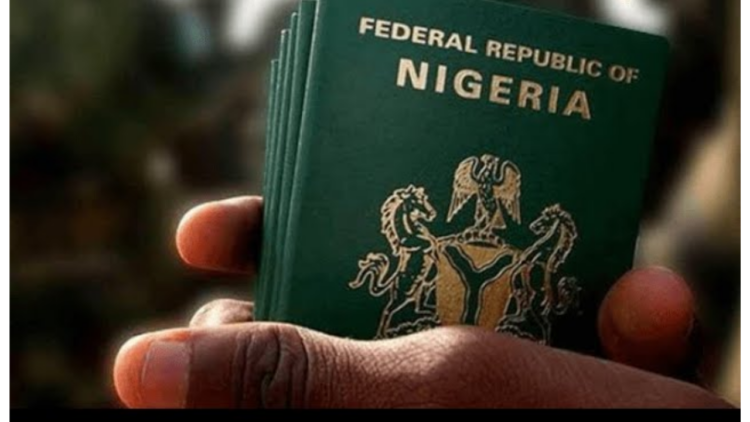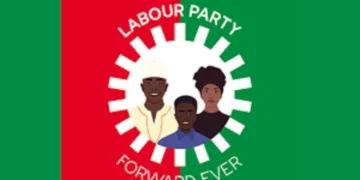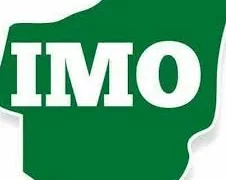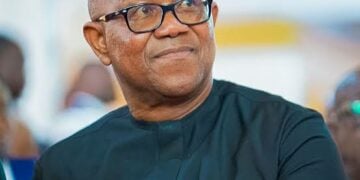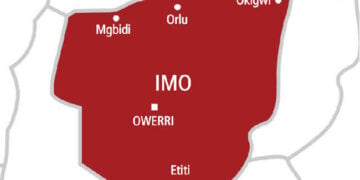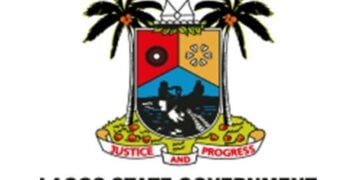To end the lingering scarcity of the e-passport booklets caused by the non-payment of N16 billion production debt to vendors and other stakeholders in the value chain, the federal government and the Nigeria Immigration Service (NIS) have initiated moves to offset the debt and clear the way for more supplies .
LEADERSHIP Friday learnt that to save its face, the federal government and the NIS have held several meetings with the concerned stakeholders to address the embarrassing situation.
A credible source in the sector said, “The federal government and the NIS had in a swift response to the LEADERSHIP earlier report on the issue, called for dialogue on the part of all critical stakeholders. The government promised to do something regarding the bureaucratic bottlenecks which have been responsible for delays in payments for services rendered.”
While revealing that there is another leg to the discussions, the source disclosed further that the Nigeria Customs Service and the Immigration Service were working in synergy as government institutions to address the challenges since both are expected to key into the Renewed Hope Agenda of President Bola Tinubu.
A sister publication, LEADERSHIP (Daily) reported three weeks ago, that the shortage of the passport booklets was caused by the illegal monthly deductions of 50 per cent fund from the income paid into the Nigeria Immigration Service (NIS) Treasury Single Account (TSA) from passport sales, specifically opened for the acquisition of the e-passports, by the minister of finance and the Accountant General of the Federation (AGF).
LEADERSHIP had quoted a top source at the passport office at the Nigeria Immigration Service headquarters, as explaining that the misconception is that the gross income paid by passport applicants goes directly to the NIS TSA, from where the service is supposed to make payment to all stakeholders involved in the passport production value chain.
The source lamented that, before the said income drops, the federal government, which regards the money as net income, takes out 50 per cent, leaving the Immigration service with nothing reasonable to pay its vendors and other stakeholders concerned.
He said, “Let me give you an example, the cost of the 32-page passport booklet outside Nigeria is $132, while the cost of the 64-page category is $230. If you apply outside Nigeria and you pay in dollars, the money goes straight into the Federal Account which is shared amongst the three tiers of government every month by the Federation Account Committee (FAAC).”
He also revealed then that “Our service providers are owed over N16 billion while printed booklets are stuck in warehouses due to our inability to offset these huge debts.”
The source further explained then “that there are booklets to be delivered to the NIS by the printers, but they are stuck in Nigeria Customs Service and DHL warehouses due to the huge debts owed them.
“The Customs Service, DHL and two Nigerian banks are amongst service providers that are insisting on the payment of their outstanding N16 billion balance before the documents would be released to us. As a matter of fact, we are meant to understand that the manufacturing firms based Slovenia, Malaysia, and another in Malta handling the e-passport projects are yet to be reimbursed in line with our agreement to always make payment two weeks after printing and supplying the e-passports,” he stated.
Giving fresh insight about the strategies being explored, the top source said, “I believe on the basis of the synergy, (payments or no payments) the booklets in the warehouses of the Nigeria Customs Service would be released to the NIS very soon.
“I must, however, commend the Minister of Interior, Dr. Olubunmi Tunji-Ojo, for his tenacity and strength of character. He has raised the bar for excellent and exemplary service for the NIS.
“The first time we had this challenge, only God knows how he navigated the systems and ensured that service providers and other vendors in the passport value chain got paid. Of course, I would not rule out the possibility of having the President’s ears, or he enjoys his confidence,” he concluded.


